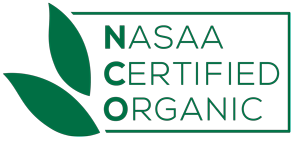Liz Pitcher, newly appointed National Association for Sustainable Agriculture Australia (NASAA) board member says you don’t
need to reinvent the wheel to become organic.
”Organic certification requirements are not dissimilar to other regulatory processes already undertaken and to low input
conventional viticulture management practices moving towards the more sustainable management of vineyards.
”While converting to organic certification can be perceived as onerous, organic management plans can encompass existing
sustainable systems and management practices with a modicum of changes,” Ms Pitcher said.
Similar to conventional wine growing where increasingly traceability is becoming more important, organic certification adds the
NASAA food production quality assurance label, allowing entry to organic markets around the world.
“I see organic conversion as a continuation of the Australian trend towards sustainable and lower input conventional vineyards,”
said Ms Pitcher. “Rather than being deterred, I would encourage those considering organic conversion to seek help and
information from NCO in regard to how their current practices meet the needs of certification.”
Mr Glenn Schaube, NASAA Board Chair welcomed Ms Pitcher to the Board: “Having Liz on the NASAA Board reflects the
growing domestic and international consumer demand for Australian organic wines.
“At the same time, Jan Denham has stepped down from the NASAA Board after serving a second seven year term as Chair.
While Jan will remain on as Chair of NASAA’s subsidiary company, NCO, I take this opportunity to thank her for commitment to
the organic sector and her dedication to ensuring a positive future for the NASAA,” Mr Schaube said.
Ms Pitcher completed a Bachelor of Agricultural Science (Hons) from the University of Adelaide and a Bachelor of Applied
Science (Viticulture) from Charles Sturt University but says her exposure to organic farming as part of that education was
minimal. She is currently Technical and Organic Manager at Chalk Hill Viticulture, McLaren Vale, SA, and has extensive
experience in the sector in grower liaison and quality assurance.
“I have always been a huge advocate for sustainable agriculture and more recently for organic certification. This new role with
NASAA allows me to share my industry knowledge and experience to help grow the sector overall,” said Ms Pitcher.
“One aspect I am particularly looking forward to is discovering more about organic farming in different commodity areas,” she
said. “The more we share knowledge and innovation within organics, the greater the opportunity to increase productivity,
reduce inefficiencies and meet the demand for certified product.
“When I went through university, momentum was growing for the use of minimal tillage and direct drill in broad acre agriculture,”
she said. “As a teenager, I identified a goal to help farmers grow more sustainably, both economically and environmentally; my
new role with NASAA is another step along that journey.
“The science behind organic farming systems is constantly improving, providing a rapidly expanding evidence base to support
the philosophy and practices behind organic food systems. In traditional grape growing and winemaking, there is already a rich
knowledge repository in Australia. The next challenge is to integrate a deeper understanding of the benefits of organic
production which will also help lower the onerous perception of converting to organic certification,” Ms Pitcher said.
ABOUT THE NATIONAL ASSOCIATION FOR SUSTAINABLE AGRICULTURE, AUSTRALIA
Formed in 1986, the National Association for Sustainable Agriculture, Australia supports the development and growth of organic
food production in Australia and overseas. NASAA’s Standard are recognised internationally across the organic supply chain
covers – from input manufacturers to producers, processors to wholesale and retail operations – ensuring organic integrity from
paddock to plate’.
NASAA MEDIA ENQUIRIES: Mobile 0437 477 150 Email kate.husband@ncocertifiedorganic.com.au
